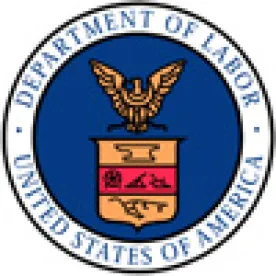The U.S. Department of Labor’s Office of Labor-Management Standards (“OLMS”) recently issued its long-debated “persuader” regulations which, as of July 1, 2016, will require employers and their labor relations consultants, including legal counsel, to publicly disclose relationships which had long been permitted to remain confidential under the Labor-Management Reporting and Disclosure Act (“LMRDA”).
Where We Were
The current LMRDA requires employers and their labor relations consultants to report any arrangement, the purpose of which is to either directly or indirectly “persuade employees to exercise or not to exercise, or persuade employees as to the manner of exercising, the right to organize and bargain collectively through representatives of their own choosing, or undertakes to supply such employer with information concerning the activities of employees or a labor organization in connection with a labor dispute involving such employer. . . .” It requires that such “persuader” relationships be disclosed to OLMS via the submission of Form LM-10 (“Employer Report”) and Form LM-20 (“Agreement and Activities Report”). However, the current LMRDA carves out a key exception to its reporting requirements for relationships which are restricted to the provision of “advice” to the employer. Significantly, the “advice” exemption has long been interpreted to mean that, in the absence of direct contact with employees, labor relations consultants and attorneys could provide employers with unreportable advice, including much of the advice regularly provided to employers throughout the union organizing and bargaining processes.
Where We Are Now
However, the OLMS’ new final rule – which largely adopts the rule it first proposed nearly 5 years ago, in June 2011, which met substantial resistance from business groups, the American Bar Association and state Attorneys General, among others – will significantly narrow the “advice” exemption by defining “advice” to mean “an oral or written recommendation regarding a decision or a course of conduct.” As a result, the rule will trigger LMRDA reporting of any persuader activity, irrespective of whether or not an employer’s labor relations consultants and attorneys have direct contact with employees.
More specifically, an arrangement between an employer and a consultant and/or attorney will be reportable when a consultant/attorney directly engages employees in “persuader activities” – which will be defined to include actions or communications intended to “affect an employee’s decisions regarding his/her representation or collective bargaining rights” – or, in the absence of direct contact, when a consultant/attorney: (i) plans or coordinates persuader activities for supervisors or other employer representatives; (ii) provides oral, written, or electronic persuader materials to employers for distribution to employees; (iii) conducts seminars for employer representatives that include information regarding persuader activities; or (iv) drafts/implements personnel policies or actions for employers with an object to persuade employees.
Within 90 days following the end of an employer’s fiscal year, employers are currently required to file the Form LM-10, disclosing the use of any persuader. Under the new rule, employers will now be required to make the same report regarding their relationships with counsel, including: (1) the date and amount of any reportable arrangement; (2) the name, address, and position of the individual with whom the arrangement was made; and (3) “a full explanation of the circumstances of all payment made, including the terms of any agreement or understanding pursuant to which they were made.” Additionally, labor consultants/attorneys will now be required to file a Form LM-20 within 30 days of entering into a reportable engagement with an employer, disclosing: (1) the parties to the arrangement; (2) the “object” and terms and conditions of the arrangement; and (3) the activities that will be, or have been, performed pursuant to the arrangement. The detail required in such a report is an open question and will undoubtedly lead to disputes. Any labor consultant/attorney required to file a Form LM-20 is also required to file a Form LM-21, within 90 days following the end of the individual’s fiscal year, disclosing receipts and disbursements “of any kind” received in connection with the provision of “labor relations advice or services.”
Notably, the LMRDA imposes criminal liability on employers and consultants/attorneys who willfully fail to file a required report or file a false report.
What Might Happen Next
In light of the robust opposition to both the OLMS’ proposed and final persuader rule, it is possible that the very same business groups which contested the rule will file suit to combat the rule’s implementation. We will continue to monitor all developments and provide updates as necessary.



 />i
/>i

